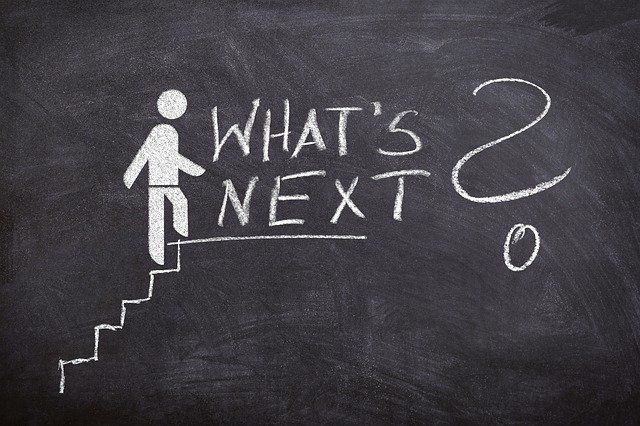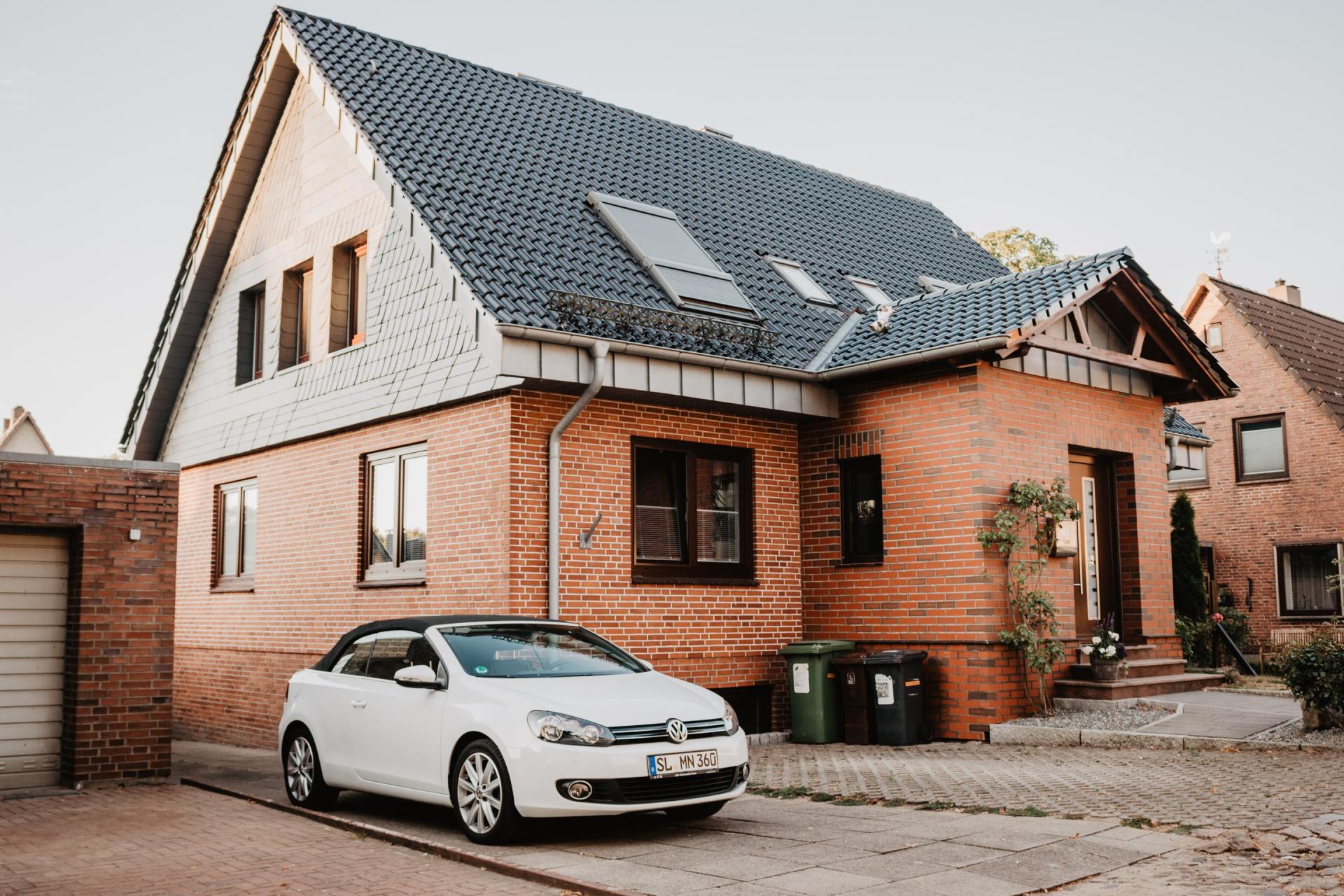Brian Sanchez · The No-Pressure, Dedicated Local Mortgage Lender
Call/Text me at (706) 973-7933
How to Get a Mortgage Loan
Pretty much everyone dreams of owning a home. But getting a home can be tricky, especially if you’re part of the majority of the Americans who can’t afford to buy a house with just cash. Many people rely on mortgage loans in order to get the home of their dreams. But how do you go about getting a mortgage loan? Brian the Lender has the answers to your questions about home loans.

What is a mortgage loan?
There are few people out there who can buy a home at cost with the cash in their pocket or the money in their bank account. Homes are expensive, so how does anyone get the funds to buy one? The answer is with a mortgage.
A mortgage, or mortgage loan, is a type of loan that is used to buy or refinance a home. Depending on the terms of your mortgage, you will pay a set amount of money each month toward the interest and principle of your mortgage loan for a certain number of years, until the whole amount is paid off.
Steps to Getting a Mortgage Loan
Obtaining a mortgage loan is a process that can span weeks, months, or years, depending on your situation and the type of home you’d like to buy. But don’t let the timeline discourage you from buying a home. If you follow the process below, you can soon be ready for a mortgage loan without feeling lost or overwhelmed.
1. Determine Your Price Range
One of the biggest factors that will influence the price range of homes you can afford is your income. While there is no set amount of earnings that you need to make in order to buy a home, you need to have proof that you have enough regular funds available to you in order to pay for your mortgage.
The main thing that your mortgage lender will look at to determine if you can afford your loan is your
Debt-to-Income Ratio (DTI). Your DTI is the percentage of your gross monthly income (earnings before taxes) that goes toward paying your current bills or debts. A low DTI ratio is what you should strive for, as it indicates that you can comfortably make all of your monthly payment obligations.
2. Save for a Down Payment
If you want a lower interest rate and/or a lower monthly payment on your mortgage, the best way to make that happen is with a large down payment. In order to avoid paying mortgage insurance on conventional loans, your down payment needs to be at least 20% of its cost. So if you have your eyes set on a $200k home, you should be prepared to put down at least $40,000 in order to get a good interest rate and a comfortable monthly mortgage.
You do not necessarily need to have that much saved up, though.
First time home buyers can go down to as low as 3% on conventional loans, and there are also 0% down payment options such as USDA and VA loans.
There are also other costs involved in getting a loan, such as closing costs. Speak to your lender to get a good idea of how much you should have saved by the time you’re ready to buy a home.
3. Select the Right Kind of Mortgage for You
There are a few different kinds of mortgages that you can choose from when buying a home, and each will have different interest rates and terms. Depending on your situation, one of these loans may be better suited for what you need:
- Conventional Loan: These loans are the most common, and are great for those with solid credit and little debt. Most banks offer conventional loans, and you can also find them through independent mortgage lenders.
- Government-Insured Loan: There are various reasons why one might get a government-insured loan. Government-insured loans include those from the U.S. Federal Housing Administration (FHA), the United States Department of Agriculture (USDA), and the U.S. Department of Veterans Affairs program (VA). You can find these types of loans through a variety of institutions, and there are various pros and cons with each loan type. Make sure to speak with your lender to see which loan type is the best for you.
- Jumbo Loan: Jumbo loans are required when the loan amount exceeds $548,250 (or $822,375 in more generally expensive regions). They have a few more requirements than a conventional loan, but are a great option when you can’t put down enough money to stay within conventional loan limits.
4. Get a Preapproval Letter
When you’re ready to start looking for homes, it’s time to get a preapproval letter, which shows that you are capable of acquiring the necessary loan to purchase a home. Make sure you use a realtor that is 1) familiar with the region, and 2) is able/willing to explain things in a way that makes you feel comfortable and informed. This is a huge decision, and you need to make sure you are in good hands.
If you feel like you’re not getting a great deal, or just want to make sure, then you should reach out to multiple lenders and make sure you are going with the one that is best for you. Most lenders will be happy to have your business and will (or should) put their best foot forward and compete for it.
What are mortgage lenders looking for?
When you are getting ready to apply for a mortgage loan, it’s important to know what lenders are looking for so that you are better prepared with your answers in these applications. There are four important factors to remember: income, property type, assets, and credit (or IPAC for those who work better with acronyms). Let’s take a closer look at each.
Income
Remember that while there isn’t a predetermined minimum income requirement to buy a home, your qualification is determined by your debt-to-income ratio (DTI). A low DTI shows lenders that you are likely to be able to repay the loan. You’ll also need to provide employment history, as well as proof of any additional income you wish to include.
Property Type
The type of property you’re looking to buy can affect what kind of loan you’ll get approved for. There is a certain level of risk that a lender will look out for when considering offering you a loan.
If you’re trying to buy a single-family home that you plan to live in for a while, then your lender will know that you will be using this property as your primary place of residence, and that you’ll aim to stay consistent with your mortgage payments. However, if you are trying to buy an investment property, you will need to provide a larger down payment and have a higher credit score in order to be approved for a loan. This is because if you end up in a financial crisis down the road, your investment property payments won’t be as top a priority as your primary residence.
The interest rate and buyer requirements of your home will vary from property to property. Also, keep in mind that not every lender will offer you a loan for every type of property (i.e. a mobile home, a commercial building, or a manufactured property).
Assets
If you have savings accounts, retirement accounts, and/or taxable investment accounts, these are all examples of assets that a lender will want to know about. You will need to show that you have enough to make the down payment and pay for closing costs. Additionally, your loan application is strengthened by having reserves. Reserves refers to the money left in the bank after closing, and it shows that you will still be able to make your mortgage payments in the event of a financial crisis.
Credit
Perhaps the most important factors that will work in your favor when applying for a mortgage loan are your credit history and credit score. When you have a high credit score, a lender will know that you are good at managing your debt, and that you don’t make a habit of borrowing more than you can afford. If you have a low credit score, a lender will think you aren’t good at managing your money, even if that’s not necessarily the case.
Across the board, a high credit score will give you access to lower interest rates and a wider range of lenders. If you have a low credit score, it may be a good idea to work on building it up before you apply for a mortgage loan.
5. Find a Property
Once you’ve got your preapproval, you can now officially start your house hunt. Decide what you’d like your home to have, consult with your realtor, and take time to review each property. And when you find the home of your dreams, get ready to jump on that property with an offer as soon as possible. The housing market is very competitive, and it’s not uncommon to lose more than one dream home to a bidding war before you are able to land a property you’re still happy with. Just know that you will come across more than one dream home while you are searching for properties.
6. Complete a Loan Application
Once you’ve found the perfect property that fits your price range and personal tastes, it’s time to fill out and complete your loan application. Most applications are done online, however, there will be times when it is more efficient to complete your application in person or over the phone. There are quite a few documents you’ll need to submit in order to complete your application.
What documents do I need to apply for a mortgage?
Below are the three main types of documents you’ll need in order to apply for a mortgage:
- Proof of Income. You will need a sizable amount of paperwork that verifies your current income and financial status. These documents include: federal tax forms from the last two years, your last two W-2s and pay stubs, and extra documentation if you’re self-employed or receive child support or alimony.
- Credit Documentation. Your lender will need to view your credit report in order to finalize your loan, and will need written or verbal permission from you to do so. If you have a bankruptcy or foreclosure in your credit history, you won’t be able to get a mortgage loan for a few years. If you know that your credit has been damaged, then you should talk with your lender before they run the credit report. You can explain with proof if you missed payments due to a one-time occurrence like a medical emergency, and your lender won’t mark it against you.
- Proof of Assets and Liabilities. As we’ve explained earlier, having assets is a great indicator that you can continue to make your mortgage payments in the event of a financial crisis. Proof of these assets includes: up to 60 days’ worth of bank statements that confirm the assets in your checking and savings accounts, a recent statement from a retirement or investment account, documentation of sale for any assets you sold before applying for the loan (like a title transfer copy if you’ve sold your car), and more.
7. Wait for Your Financing to Come Through
After you’ve submitted all of the proper documentation, it’s a waiting game from there. There’s a chance that you won’t get financing from your lender, even if you got preapproved for your mortgage loan. The decision of whether or not you get financing is made by the lender’s underwriting department. This group of people will:
- Evaluate the risk you give as a borrower.
- Determine the amount of your loan.
- Determine how much your mortgage payments will cost.
The typical wait time for financing to come through is 1-5 days. If you’re approved for financing, then you can close on your home.
8. Close on Your Home
You’re almost done at this point! All that’s left to do is pay closing costs, get your mortgage funds, and receive the keys to your new house. The closing process looks a little different depending on your state, but it typically involves the confirmation that the seller owns the house and is authorized to transfer its title, checking to see if there are any other claims against the property that need to be settled, collecting funds from the buyer, and then distributing this money to the seller after taking out a certain sum to cover realtor fees and other charges.
As a buyer, you are responsible for the following closing costs:
- Appraisal Fee
- Credit Check Fee
- Title Services Fee
- Origination and/or Underwriting Fee
Some of the documentation you receive at closing includes a detailed statement of where all the money involved in the process came from and went. The agent who provides this statement will enter this information into the public record, and will deliver the deed of the house to you.
How to Get a North Georgia Mortgage Loan
If you’re looking to buy a home in north Georgia, Brian the Lender is here to help. We can walk you through the mortgage loan application process, consult with you on what you can do to get approved, and be with you every step of the way as you gather the documentation you need for your application.
Call Brian the Lender today to get started on your north Georgia mortgage loan:
(706) 973-7933.










